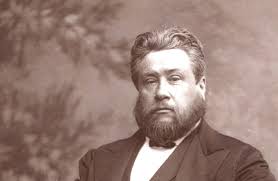I’m working on finishing up a new book this week (I’m being optimistic), called Spurgeon Calling: The Modern Day Downgrade. As I’m waiting for the latest edition of P&PP to upload via the very poor wifi in my sermon bunker, I thought I’d leave some quotations here from the Downgrade Controversy, faithfully collated at Spurgeon.org…
According to the best of our ability we sounded an alarm in Zion concerning the growing evils of the times, and we have received abundant proof that it was none too soon. Letters from all quarters declare that the case of the church at this present is even worse than we thought it to be. It seems that, instead of being guilty of exaggeration, we should have been justified in the production of a far more terrible picture. This fact causes us real sorrow. Had we been convicted of mis-statement we would have recanted with sincerely penitent confessions, and we should have been glad to have had our fears removed. It is no joy to us to bring accusations; it is no pleasure to our heart to seem to be in antagonism with so many.
Have you ever been there? Have you ever sounded the alarm among your fellow Christians, with no shortage of abundant proofs? And yet, it seems that no proof is good enough? “Nah, things aren’t that bad.” If I’ve heard it once, I’ve heard it a thousand (or ten thousand) times. Welcome to the work of discernment.
Spurgeon (and Schindler, who launched the first volleys of the infamous Downgrade Controversy), had thought they presented mountains of evidence (in fact, they did). But as the controversy came to light, two things happened. First, more and more evidence was brought forward – they had only scratch the surface – confirming their suspicions and initial claims. Secondly, even the defenses provided to them and accusations leveled against them gave even greater concerns for the state of the church in England. That people would deny the obvious problem was particularly problematic.
Spurgeon also desperately wanted people to know that they were not pleased to have their accusations taken with such hostility, and they were grieved to be at animosity with most everyone. As MacArthur says in this excerpt…
Instead of answering Spurgeon’s charges, the critics had declared them vague (although both Shindler and Spurgeon had been anything but vague). Spurgeon was now struggling with recurring kidney ailments and had been absent from the pulpit. Some insinuated that the Down-Grade articles were the rantings of someone who was desperately sick.
“No, Spurgeon is just plain crazy. He’s gone mad!” And yet, Spurgeon and Schindler would not relent. There was trouble in Zion, and there was no convincing those who were at ease of the problems.
Our opponents have set to work to make sneering allusions to our sickness. All the solemn things we have written are the suggestions of our pain, and we are advised to take a long rest. With pretended compassion, but with real insolence, they would detract from the truth by pointing to the lameness of its witness. Upon this trifling we have this much to say:—In the first place, our article was written when we were in vigorous health, and it was in print before any sign of an approaching attack was discoverable. In the second place, if we were in a debate with Christians we should feel sure that, however short they might run of arguments, they would not resort to personalities.
To make a very, very long story short, the Baptist association would not tolerate Spurgeon’s accusations of theological downgrade.
The Council recognises the gravity of the charges which Mr. Spurgeon has brought against the Union previous to, and since, his withdrawal. It considers that the public and general manner in which they have been made reflects on the whole body, and exposes to suspicion brethren who love the truth as dearly as he does.
His concerns wouldn’t be listened to. After all, those he accused of Downgrade loved truth just as much as he did. Riiiight. Sure they did. Sadly, few listened to the Prince of Preachers. History was the judge, and although Spurgeon died without knowing it, he would be acquitted.
[Contributed by JD Hall]












